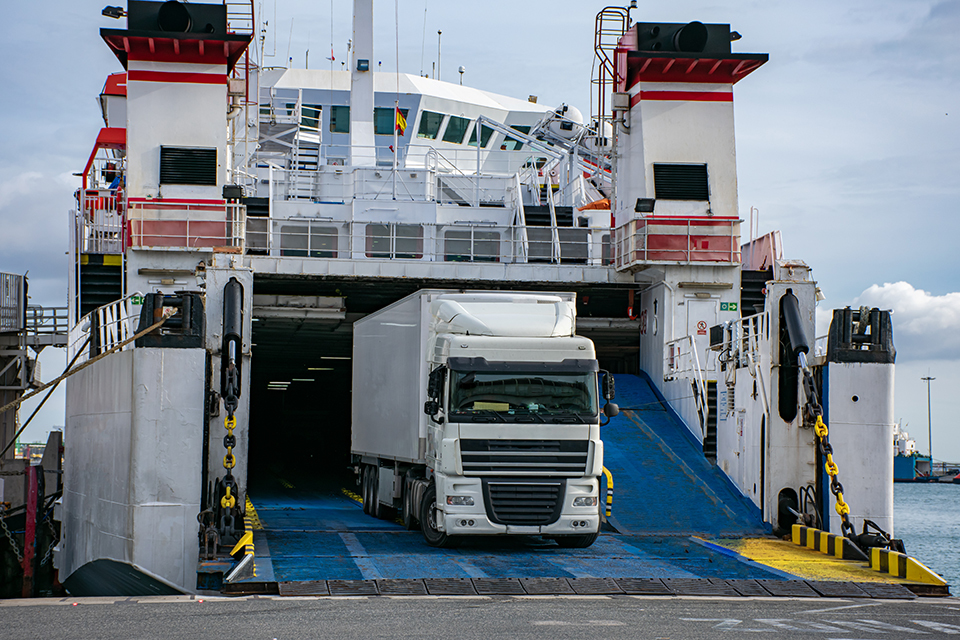HMRC's annual report and accounts 2021 to 2022: performance overview
Published 18 July 2022
An overview of our performance in financial year 2021 to 2022, including information about our vision, objectives and the way we operate.

About HMRC
Our purpose and vision
We are the UK’s tax and customs authority. We collect the money that pays for the UK’s public services and give financial support to people.
Our vision is to be a trusted, modern tax and customs department.
Our values
We are professional
We act with integrity
We show respect
We are innovative
Our strategic objectives
Collect the right tax and pay out the right financial support
Make it easy to get tax right and hard to bend or break the rules
Maintain taxpayers’ consent through fair treatment and protect society from harm
Make HMRC a great place to work
Support wider government economic aims through a resilient, agile tax administration system
Our Charter
The HMRC Charter sets out the standards our customers can expect when interacting with us and the experience we want to deliver. The Charter commits us to:
- getting things right
- making things easy
- being responsive
- treating customers fairly
- being aware of customers’ personal situation
- recognising that someone can represent customers
How we are organised
We are led by Jim Harra, our First Permanent Secretary and Chief Executive, and Angela MacDonald, our Second Permanent Secretary and Deputy Chief Executive. Our department is made up of 4 core customer-focused groups, supported by corporate services, as set out below.
Our core customer groups
| Customer group | Purpose of customer group |
|---|---|
| Customer Strategy and Tax Design | Leads on the development and delivery of policy reforms to the UK tax and payments system to support government priorities, underpinned by high quality customer insight and analysis |
| Borders and Trade | Responsible for the policy, design and delivery of our accountabilities for UK Transition and delivery of customs revenue at the border, working closely with Border Force |
| Customer Services | Supports customers to pay the right tax and get the right benefits, helps those who have built up debt to pay what they owe and helps businesses to run smoothly and within the law |
| Customer Compliance | Ensures the right tax is paid and intervenes when there is a risk of that not happening |
Our corporate services
| Corporate service | Purpose of customer group |
|---|---|
| Chief People Officer Group | Develops and oversees the effective implementation of HR policies that support colleagues and improves their working experience, with overall responsibility for our workforce planning, recruitment, talent and learning activities |
| Chief Finance Officer Group | Includes our Finance, Commercial and Estates services, which provide the systems, tools, processes and controls for ensuring the smooth, safe and effective running of HMRC |
| Chief Digital and Information Officer Group | Designs, develops and runs innovative, joined-up and reliable digital and information services for our people and our customers while ensuring we hold data in a way that is secure, proportionate, protected and meets legal requirements |
| Solicitor’s Office and Legal Services | Provides legal services to the whole of HMRC |
| Transformation | Leads and manages cross-cutting transformational change within HMRC and oversees our response to the pandemic, through the COVID-19 response programme |
| Communications | Provides professional communications advice, support and services to the whole of HMRC and incorporates HMRC’s Sustainability Team |
As well as the groups described above, our full departmental group includes:
- Valuation Office Agency (VOA): an executive agency which gives the government the valuations and property advice needed to support taxation and benefits
- Revenue and Customs Digital Technology Services Limited (RCDTS Ltd): a non-profit making company wholly controlled by and operated for HMRC which supplies the department with IT services
Our departmental group had around 67,000 full-time equivalent employees at the end of financial year 2021 to 2022.

2021 to 2022: our year in numbers
The progress we made towards our vision of a trusted, modern tax and customs department in 2021 to 2022
Strategic objective 1: Collect the right tax and pay out the right financial support
£731.1 billion total tax revenues
5.1% latest UK tax gap estimate for 2020 to 2021
£30.8 billion additional tax generated through tackling avoidance, evasion and other non-compliance
12.3 million children supported through Child Benefit payments
0.5p cost of collecting taxes for every £1 in tax revenue
Strategic objective 2: Make it easy to get tax right and hard to bend or break the rules
92.9% webchat adviser attempts handled
10.3 million Self Assessment customers supported before 31 January deadline
45.5% customer correspondence turned around within 15 days
1.7 million businesses using Making Tax Digital for VAT since 2019 launch
Strategic objective 3: Maintain taxpayers’ consent through fair treatment and protect society from harm
£4.3 billion Protected from our activity to tackle serious fraud
82.0% customer satisfaction with our phone, webchat and digital services
more than 7.8 million employers and workers supported to understand National Minimum Wage law
56% reduction in greenhouse gas emissions from our estates and business travel since 2017-18
Strategic objective 4: Make HMRC a great place to work
2 new regional centres opened
4,100 colleagues trained in tax and compliance skills
2 percentage point increase in our Employee Engagement index score
50,000 colleagues participated in race equality and inclusion workshops
Strategic objective 5: Support wider government economic aims through a resilient, agile tax administration system
more than £98 billion of support paid out to businesses, households and self-employed people through COVID-19 financial support schemes since launch
155,000 traders and hauliers contacted to help them prepare for new customs controls
57.6% reduction in reports of HMRC-branded phone scams during 2021
1.9 million consignments processed by our free Northern Ireland Trader Support Service

Chief Executive’s performance summary
I’m proud to have spent my entire working life in the UK’s tax and customs service.
We carry out a vitally important role for government and for society as a whole: bringing in the money that funds the public services we all rely on, including police, schools and the NHS.
I know that my colleagues (around 67,000 in total, working right across the UK) also understand the value of what we do, and they demonstrate this every day with their professionalism and commitment to public service - no more so than over the past 2 years.
The period since the start of the COVID-19 pandemic has been the most remarkable I’ve experienced in my career, and it’s been a privilege to lead HMRC during this time. We played a vital role in the government’s economic response to the COVID-19 pandemic, protecting millions of jobs and supporting our customers during unprecedented circumstances. At the same time, we supported the UK’s transition from the EU, while keeping core tax administration services running.
Put simply, we stepped up to address huge new challenges that mattered to the whole of the UK and delivered the urgent support our customers needed quickly and effectively. As this year’s annual report shows, we carried on doing that during financial year 2021 to 2022 without losing sight of our core purpose of collecting tax and delivering financial support – and despite facing difficult decisions along the way.
Getting on with the job
This was a year in which we continued delivering major COVID-19 financial support schemes for the first six months – but also saw total tax revenues recover back to a record figure of £731.1 billion. We helped 2.4 million customers to renew their tax credits in 2021 and 10.3 million customers to complete their Self Assessment returns by the end of January 2022. We also supported more than 12 million children through Child Benefit and 458,000 through Tax-Free Childcare – and we continued taking robust action against those trying to break the rules, carrying out 215 prosecutions of tax cheats and protecting £4.3 billion from serious fraud.
So, the work of administering the tax system never stopped – but the impact of the pandemic still dominated our year, and we had to make deliberate choices about the work we prioritised in order to protect our most essential services, and the livelihoods of our citizens and businesses. In light of the exceptional circumstances, we didn’t set formal performance targets – but many of our customer service levels have nevertheless not been where we would wish them to be, and I’m sorry that some customers and agents have experienced delays when dealing with us.
The reduced economic activity created by COVID-19 – and its lag effect – also impacted the additional revenues we secured through compliance activities in 2021 to 2022, which remained at a similar level to the previous financial year at £30.8 billion. There was inevitably less yield to collect, but we also had to divert resources to COVID support and refocus our compliance activity onto priority risks, which meant deliberately opening fewer compliance checks than we would normally have done. Despite these challenges, I’m clear that we made the right choices for the unprecedented circumstances we were operating in – putting essential customer support first – and over the course of 2021 to 2022, we have made solid progress back towards normal operating levels.
Supporting trade and delivering new customs controls
On 1 January 2022, full customs controls were introduced for all goods moving from the EU to Great Britain (except for goods from Ireland). We implemented new systems and infrastructure and engaged at a large scale to ensure ports, traders and intermediaries knew what to do. In Northern Ireland, our free Trader Support Service continued helping 45,000 traders to work with new processes. We also saw the opening of the UK’s first freeports – which generate economic activity by providing tax and customs benefits to businesses operating within them – in Teesside and Thames.
Reducing our debt balance
One of the major impacts of the pandemic was on our debt balance, which reached a peak of £72 billion in August 2020. By the end of March 2022, that figure stood at £41.6 billion – a more than 40% reduction. The high debt levels were a result of economic conditions affecting people’s ability to pay and the government’s choices to support customers in unprecedented times – for example, through debt deferral schemes and a moratorium on insolvencies. We also paused the majority of our debt collection activities for a number of months, making a phased return from May 2021. Customers paying the taxes they owed at the end of their deferral periods was a major factor in bringing debt down to where it was at the end of March.
Helping customers with Time to Pay arrangements
During the pandemic we helped many customers to manage their tax debts by agreeing Time to Pay arrangements. At the end of the financial year we had 843,000 Time to Pay arrangements in place to support customers out of debt. Around 90% of these arrangements are completing successfully on time. In January 2022, at the height of the Omicron wave, we also gave Self Assessment customers an extra month to file their tax return, and until 1 April 2022 to pay or arrange a Time to Pay agreement without penalty.
We remain focused on tackling the balance this year, and will be recruiting an extra 2,000 staff, but I want to be upfront about the fact that today’s increasingly challenging economic outlook will mean more customers struggling to meet their tax obligations. We are clearing record levels of debt, but the amount of new debt being created is significantly higher than before the pandemic. In this context, we expect the debt balance to remain above pre-pandemic levels for some years. We’ll continue to do everything we can to help customers with short-term financial difficulties, but we’ll carry on taking action where customers don’t engage with us or refuse to pay.
Tackling error and fraud in COVID-19 support schemes
We designed our COVID-19 support schemes so that payments reached people quickly whilst preventing as much error and fraud as possible before any payments were made. As a result, we prevented more than 100,000 ineligible claims being processed and prevented over 65,000 suspicious claims from being paid out. We have also taken action to recover amounts that have been over-claimed, with over £760 million being recovered up to the end of financial year 2021 to 2022.
Prioritising essential customer services
Our Charter standards are at the heart of how we seek to serve customers – and we know that a good customer experience is the best way to ensure tax compliance. Throughout 2021 to 2022 we deployed our people in the most effective way we could in order to keep delivering essential tax and customs services, despite having to divert resources onto COVID-19 support. It meant that some areas of customer service dipped significantly in performance. For example, in April 2021, the proportion of callers wanting to speak to an adviser who were able to do so fell to 66.2%, substantially below where we’d want it to be. We focused on stabilising our most essential phone services and our tax credits and Child Benefit services. As a result, across the whole financial year, the proportion of callers wanting to speak to an adviser who were able to do so rose to an average of 77.3% – a solid improvement but with further to go.
We also saw a significant growth in our customer correspondence workload, driven by repayment claims for homeworking expenses and tax deducted from interest in Payment Protection Insurance compensation. At its lowest, our turnaround of customer correspondence within 15 days hit 29.7% in April 2021, but over the second half of the financial year we focused on reducing stocks of customer correspondence that had built up and improved turnaround times. Thanks to huge efforts by our teams, we reduced our correspondence on-hand from a peak of 3.3 million in July 2021 down to 1.9 million by the end of March 2022, which is within the usual volume for a typical month. We ended the financial year in a much-improved position, with our turnaround within 15 days in March 2022 standing at 65.4%.
I’m pleased with the recovery we’ve made so far – but as a department we also recognise that our customer service position still isn’t back to where it should be, and it’s clear we will carry on experiencing pressure in the current financial year, as we work to support customers through continuing economic challenges. We’re fully focused on ensuring we have the right resources where we need them to make further progress and deliver a consistent service for customers.

Making HMRC a great place to work
I’ve already talked about the commitment and professionalism of my HMRC colleagues in making the tax system work for our customers. We want to protect and build on this strength by making HMRC a great place to work – investing in learning and development and making sure we are a diverse and inclusive organisation that reflects the population we serve.
During 2021 to 2022, we implemented our new pay and contract reforms. This was an important step in modernising our working arrangements and – crucially – giving us greater flexibility to respond to the changing needs of our customers and the tax system. Of course, we want to recruit and retain the best people, so they also give our colleagues fairer and more flexible terms and conditions that make HMRC a more attractive place to work.
We’ve also continued expanding our regional centres across the UK, welcoming new hubs in Birmingham and Liverpool into our network over the course of this year. I’m delighted to see colleagues able to take advantage of working together in our regional centres to collaborate, learn together and be part of an active regional community.
Building a more inclusive and diverse workforce
We trained 350 colleagues to facilitate in-house race equality and inclusion workshops attended by more than 50,000 colleagues. We also continued improving the quality and transparency of our diversity data – and we were recognised in the Business Disability Forum’s Disability Smart Awards 2021 in the Disability Confident COVID-19 Innovation category for our approach to assistive technology.
Building a trusted, modern tax and customs department
Following a year of recovery, we are focused on delivering stability and consistency in our customer services and across our operations in 2022 to 2023.
It’s clear there are further challenges ahead: the outlook for the economy is changing and the government rightly expects all departments to become leaner, more effective and more innovative. To operate successfully, we’ll need to be agile and flexible, and tackle risks and challenges – such as the impact of rising prices and the invasion of Ukraine – as they arise.
We’re also laying foundations for the future. The funding we received as part of the government’s latest Spending Review will enable us to continue supporting taxpayers, deliver a secure and efficient customs border, and keep transforming into one of the most digitally advanced tax authorities in the world.
We know that the best way to ensure customers get their tax right is through the design of the tax system – which is why our compliance strategy is focused around three approaches: preventing non-compliance through well designed policies, processes and services, promoting good compliance through educating and customer support, and responding robustly to non-compliance when it happens.
But to deliver successfully on our priorities, it’s also vital that we keep building trust in HMRC – and the most important way we can do this is by focusing on our Charter standards. In 2021 to 2022 we did more to embed these into the way we work; for example, by working to embed new professional standards in our compliance activities and improving the way we write to our customers. We are committed to ensuring that everyone in HMRC has the skills to deliver the standards within our Charter.
It’s also clear that the tax system needs to become more flexible, resilient and responsive as the needs of society and the economy change. The age of our IT systems and infrastructure has meant we continue to experience challenges in meeting UK General Data Protection Regulation requirements – but we’re taking decisive steps to fix this by moving to a smaller number of modern, resilient, better supported IT platforms, modernising our cyber defences and enforcing data standards.
We’re also continuing our wider transformation programme. This is about delivering easier and simpler services for customers and colleagues – and becoming a more truly digital organisation. This isn’t just a ‘nice to have’. It is essential modernisation that will enable us to keep delivering our core purpose over the coming decades.
From April 2022, we made it mandatory for smaller VAT-registered businesses to join Making Tax Digital and we’re rolling out our new Contact Engagement Programme to colleagues to modernise our digital and telephony tools. We’re working on major cross-government priorities such as a new Single Trade Window, which will revolutionize how customers submit all the information required for imports and exports – and we’re well on the way to delivering Single Customer Accounts, which will transform the experience of many millions of taxpayers within the next few years by enabling them to view and manage all their tax affairs in one place online.
So, as we review the past financial year, we’re also looking ahead to what comes next, and how we can learn from our successes and the areas where we know we need to do better. This year, we’ll be getting on with the job of delivering for our customers and the UK, while putting the right building blocks in place for the future.
I’m confident in our ability to operate an increasingly resilient and effective tax system, making a real difference for our customers and building a trusted, modern tax and customs department that is fit for the challenges of the 21st century.
Jim Harra
First Permanent Secretary and Chief Executive
Our performance indicators: at a glance
| Performance measure | 2021 to 2022 | 2020 to 2021 |
|---|---|---|
| Total compliance yield (£ million) | 30,792 | 30,450 |
| Debt balance (£ million) [1] | 41,619 | 57,498 |
| Time to Pay arrangements in place [1] | 843,000 | 864,000 |
| Tax credits error and fraud [2] | - | 5.0% |
| Net Easy – phone, webchat and digital services [3] | 65.5 | 72.2 |
| Telephony adviser attempts handled [4] | 77.3% | 71.6% |
| Webchat adviser attempts handled [5] | 92.9% | - |
| Customer correspondence handled within 15 days of receipt [6] | 45.5% | 64.4% |
| Customer satisfaction with phone, webchat and digital [3] | 82.0% | 85.2% |
| New complaints received | 80,216 | 78,542 |
| Employee Engagement index score | 59% | 57% |
| Inclusion and Fair Treatment theme score | 81% | 78% |
- Data as at 31 March for that respective reporting year (2020 to 2021 and 2021 to 2022).
- 2020 to 2021 is the latest available data for tax credits error and fraud.
- The scope of the Net Easy and Customer Satisfaction measures have changed for 2021 to 2022. They now include phone services as well as webchat and digital channels, so the data is not comparable to previous years.
- Historically we have been reporting against customer facing telephone numbers (such as tax credits, PAYE and Self Assessment). From 2021 to 2022, to enable HMRC to provide a complete picture of our telephony performance, we now include all HMRC helplines.
- New measure for 2021 to 2022.
- Customer correspondence measure from 2021 to 2022 includes iForms and post – these were recorded separately in previous years, so the data is not comparable to previous years. The 2020 to 2021 figure is post only.

Managing risks to our delivery
HMRC’s Executive Committee manages 9 strategic risks to the delivery of our strategic objectives.
HMRC’s 9 strategic risks are:
- capacity, capability and engagement
- HMRC security
- exploiting information
- external perception and loss of trust
- impact of future relationship with the EU on tax administration
- improving customer experience
- data protection
- delivering the change portfolio
- funding and affordability
We worked hard to deliver mitigations for our strategic risks throughout the financial year. Our key focus has been on dealing with technological risks around security, data protection and exploiting our data. Whilst there is still more to do, we have made significant progress on making our IT more resilient and secure, increasing our protection against cyber-attacks and other external threats.
We successfully implemented full customs controls in January 2022, including all HMRC-led Inland Border Facilities (IBFs) being ready for customs examination of goods, changes to existing IT systems, and an enhanced Customer Support Model.
Our change portfolio is large and complex and therefore carries significant delivery risk. We entered financial year 2021 to 2022 with a higher delivery risk but our prioritised risk mitigation activity meant that this decreased over the course of the year and ensured that most programme outcomes have remained on track. We have also improved our monitoring and management of the impacts of slippages in programme milestones.
Our financial risk has reduced from Red to Amber, as we secured a good settlement through the Spending Review 2021 and we are making further improvements to our planning processes in 2022 to further strengthen our financial risk management throughout the Spending Review period.
